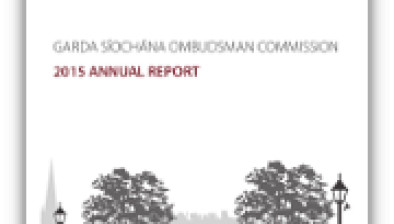Flanagan announces Government approval for drafting of key policing legislation

Charlie Flanagan
Justice Minister Charlie Flanagan has announced that the Government has today approved his proposals for the drafting of general schemes to extend the circumstances in which recording devices, including body-worn cameras, can be used by An Garda Síochána and to codify police powers of search, arrest and detention.
The two pieces of legislation are key recommendations of the Commission on the Future of Policing in Ireland, which reported in September 2018.
Mr Flanagan said: “I am delighted that Government has approved the preparation of these two key pieces of legislation recommended by the Commission on the Future of Policing in Ireland.
“The Commission set out a clear vision for policing in Ireland, a vision that will ensure we have more visible policing within our communities with the best possible resources in place to support, protect and keep all our people safe.
“We are making important progress and this work remains a high priority for my Department. We will continue to support An Garda Síochána in progressing a number of crucial actions in the months ahead, including further workforce modernisation, a review of discipline processes within An Garda Síochána and delivery of a new pilot local policing model.”
Modern policing services are increasingly using digitally-enabled tools. The Commission on the Future of Policing in Ireland noted that the technologies available to garda were limited and outdated and it proposed a comprehensive strategy for digital innovation, including the roll-out of body-worn cameras.
The use of body-worn cameras will form part of the wider Garda Closed Circuit Television (CCTV) management strategy, to ensure a consistent and standardised approach to the management of all recordings.
New legislation will also be drafted which will codify police powers of search, arrest and detention and will also codify the procedural rights and safeguards underpinning the exercise of those powers.
Mr Flanagan said: “Policing must be both effective and fair. In order to protect the rights of all, the Gardaí must have powers that curtail the rights of some, such as searching, arresting and detaining a person.
“These are amongst the most coercive powers the State can exercise, so it is imperative that there is clarity and transparency in the extent of those powers and codes of practice as to how and when they can be used. This legislation will codify the existing powers which derive from diverse legal sources and provide much greater clarity.”









